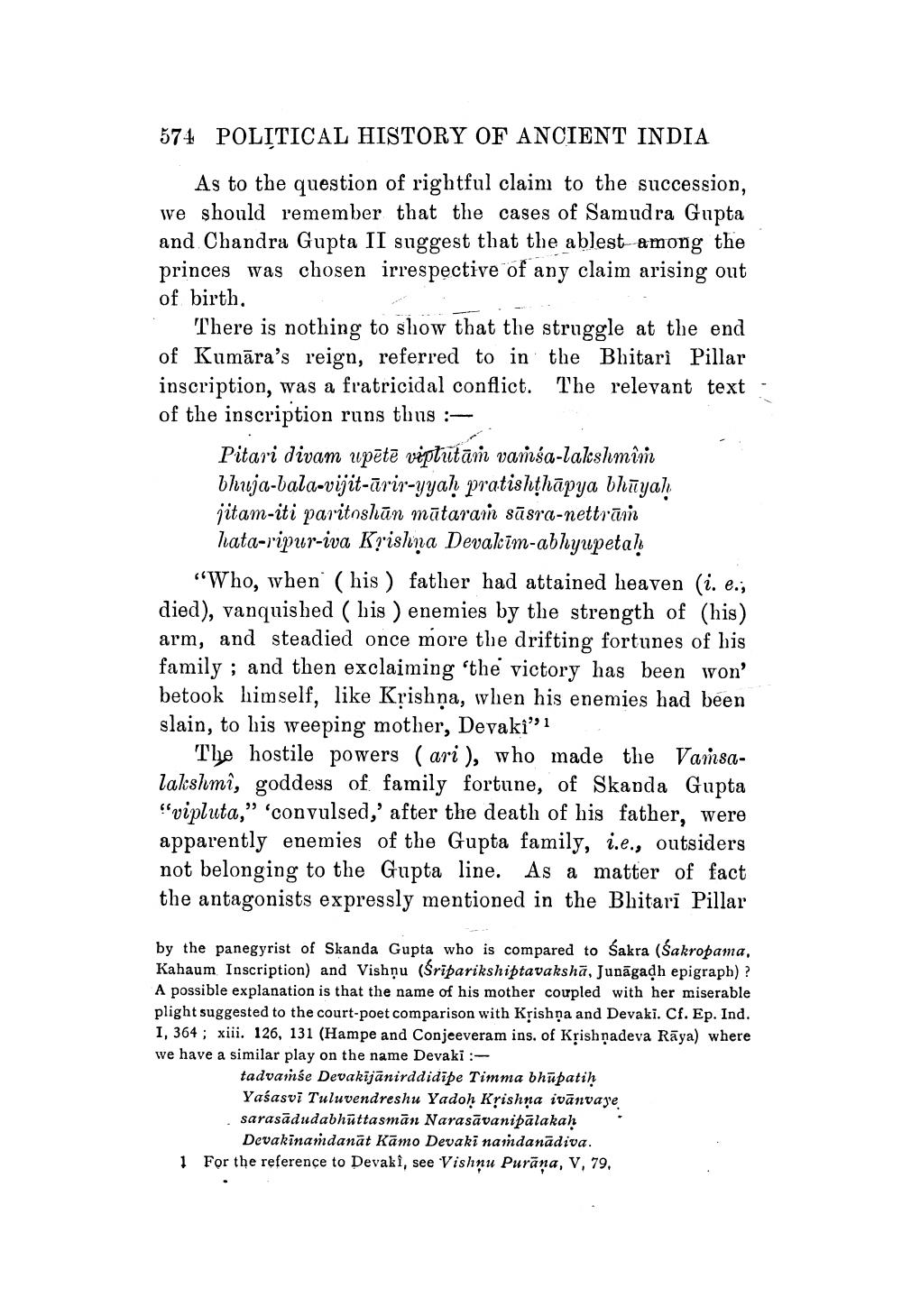________________
574 POLITICAL HISTORY OF ANCIENT INDIA
As to the question of rightful claim to the succession, we should remember that the cases of Samudra Gupta and Chandra Gupta II suggest that the ablest among the princes was chosen irrespective of any claim arising out of birth.
There is nothing to show that the struggle at the end of Kumara's reign, referred to in the Bhitari Pillar inscription, was a fratricidal conflict. The relevant text of the inscription runs thus :
Pitari divam upēte viptutam vamsa-lakshmim bhuja-bala-vijit-arir-yyah pratishthapya bhūyaḥ jitam-iti paritoshūn mātaraṁ sāsra-nettrām hata-ripur-iva Krishna Devakim-abhyupetaḥ
"Who, when (his) father had attained heaven (i. e., died), vanquished (his ) enemies by the strength of (his) arm, and steadied once more the drifting fortunes of his family; and then exclaiming the victory has been won' betook himself, like Krishna, when his enemies had been slain, to his weeping mother, Devakî"1
The hostile powers (ari), who made the Vamsalakshmi, goddess of family fortune, of Skanda Gupta "vipluta," 'convulsed,' after the death of his father, were apparently enemies of the Gupta family, i.e., outsiders not belonging to the Gupta line. As a matter of fact the antagonists expressly mentioned in the Bhitari Pillar
by the panegyrist of Skanda Gupta who is compared to Sakra (Śakropama, Kahaum Inscription) and Vishnu (Sriparikshiptavaksha, Junagadh epigraph) ? A possible explanation is that the name of his mother coupled with her miserable plight suggested to the court-poet comparison with Krishna and Devaki. Cf. Ep. Ind. I, 364; xiii. 126, 131 (Hampe and Conjeeveram ins. of Krishnadeva Raya) where we have a similar play on the name Devaki :
tadvamse Devakijanirddidipe Timma bhupatiḥ Yasasvi Tuluvendreshu Yadoh Krishna ivanvaye sarasadudabhuttasman Narasavanipālakaḥ Devakinamdanat Kamo Devaki namdanadiva. For the reference to Devaki, see Vishnu Purana, V, 79,
1




